The 1996 Land Rover Defender was not designed for Michał Woroch. When it arrived in his yard, he couldn’t even get inside. “And when someone lifted me in like a sack of potatoes,” he says, “I still couldn’t drive it.” This was the inauspicious start to a project that would become one of the most uniquely modified overland vehicles on the road. A rig that would carry a man in a wheelchair from Tierra del Fuego to Alaska, and now, from Poland to Australia.
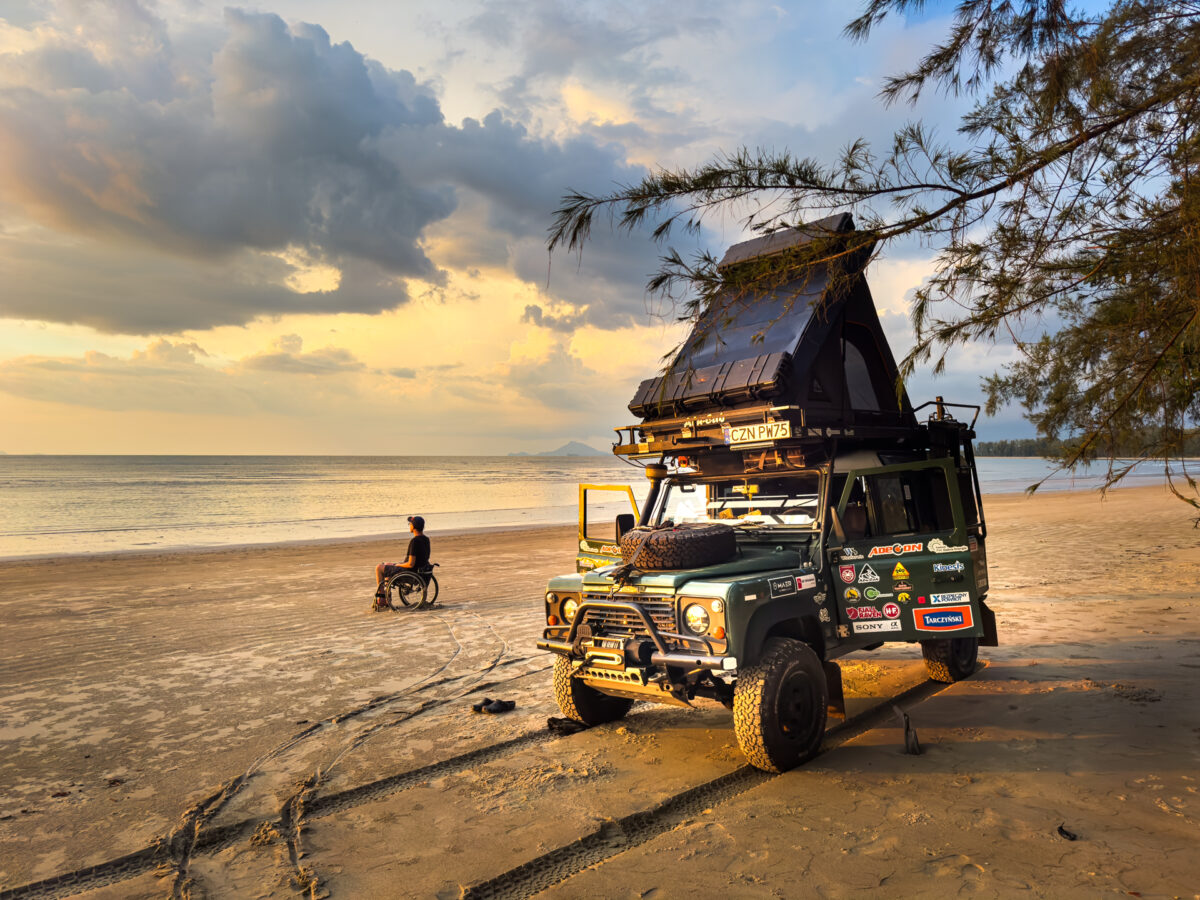
A Battered Defender and a Powerful Mind
Michał’s story is a study in how physical limits can be systematically dismantled by engineering and will. Diagnosed with Spinal Muscular Atrophy (SMA), he found his world shrinking until a shift in perspective redefined his relationship with obstacles. “I remember how a 10-centimetre curb in Poland could stop me cold,” he recalls. “Then I found myself in Mongolia, facing a half-metre curb and instead of frustration I felt adventure.” That moment was the catalyst. The ambition was to travel the world independently. The solution was a battered Defender and a powerful mind.
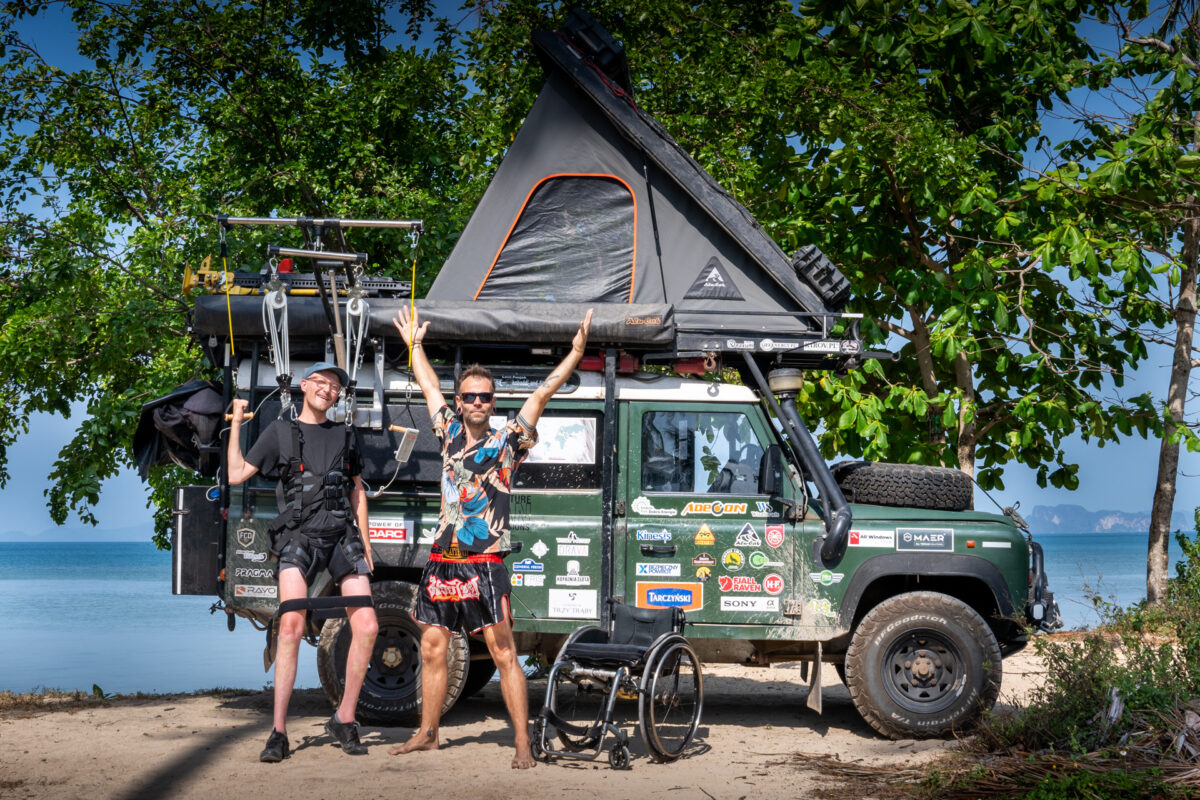
The Architecture of Access
The vehicle, a 300Tdi model he jokes was put into “well-earned retirement” after a hard life with a Polish utility company. A blank, green canvas, every system had to be invented. A transformation that took two and a half years.
The fundamentals came first. An automatic transmission swap from a Land Rover Discovery, hand controls for throttle and brake, and an electric assist motor fitted to the steering column so he could turn the massive wheel with a finger. The brake master cylinder was upgraded so the three-tonne rig could “stop like a sedan.”
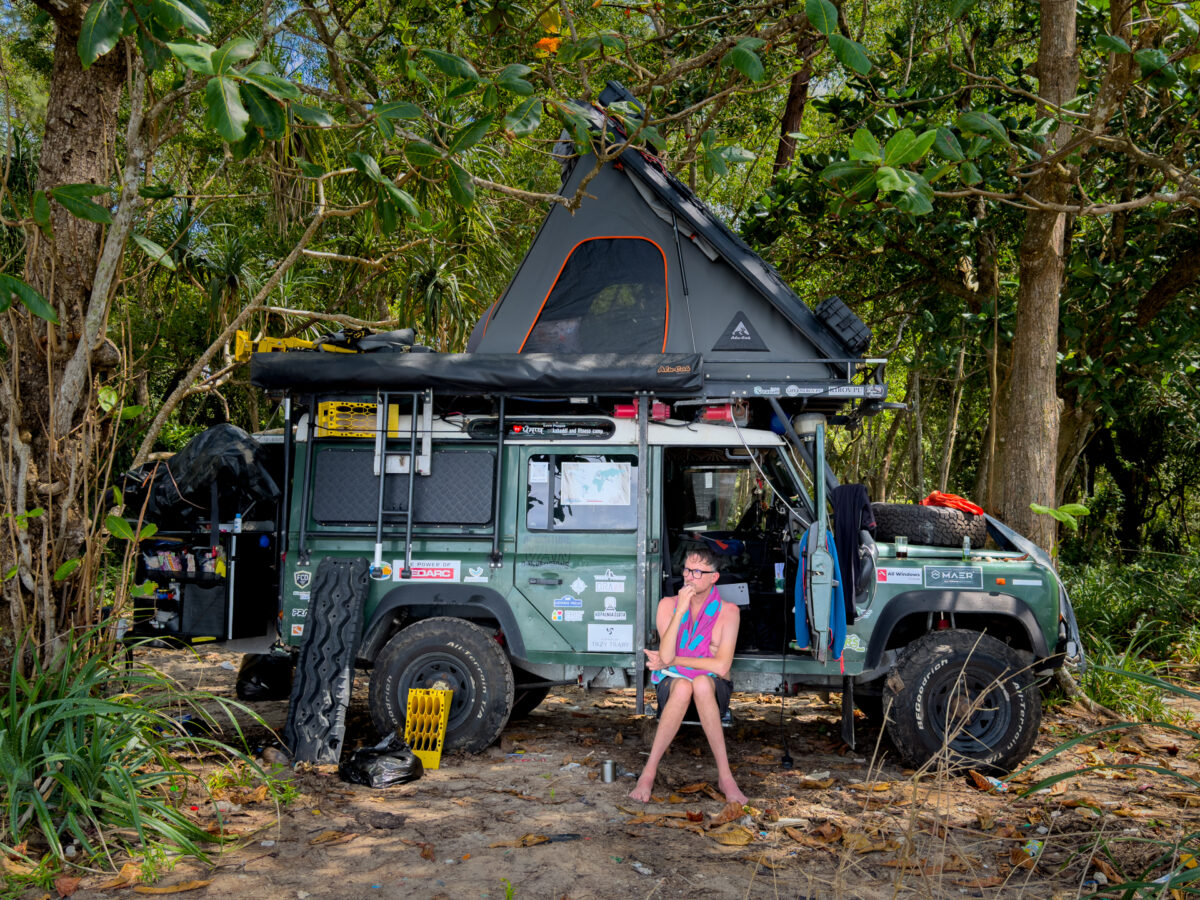
Life Lifts
But the true ingenuity lies in the lifts. “Without the lifts, there would be no journey,” Michał states. He designed a system of five winches that act as his personal “life lifts.” One raises the 60-kilogram bonnet. Another powers a side lift to get him into the driver’s seat. A third hoists his 45-kilogram powered wheelchair. A beast of a device he built himself for greater range. A fourth winch carries him up to the roof “terrace,” a viewing platform and access point to his Gen 3-R Rooftop Tent.
“The whole setup is simple. Welded metal parts, cables, pulleys and strong electric motors,” he explains. “Nothing is store-bought; everything is invented and adapted to my needs. That simplicity is its strength.”
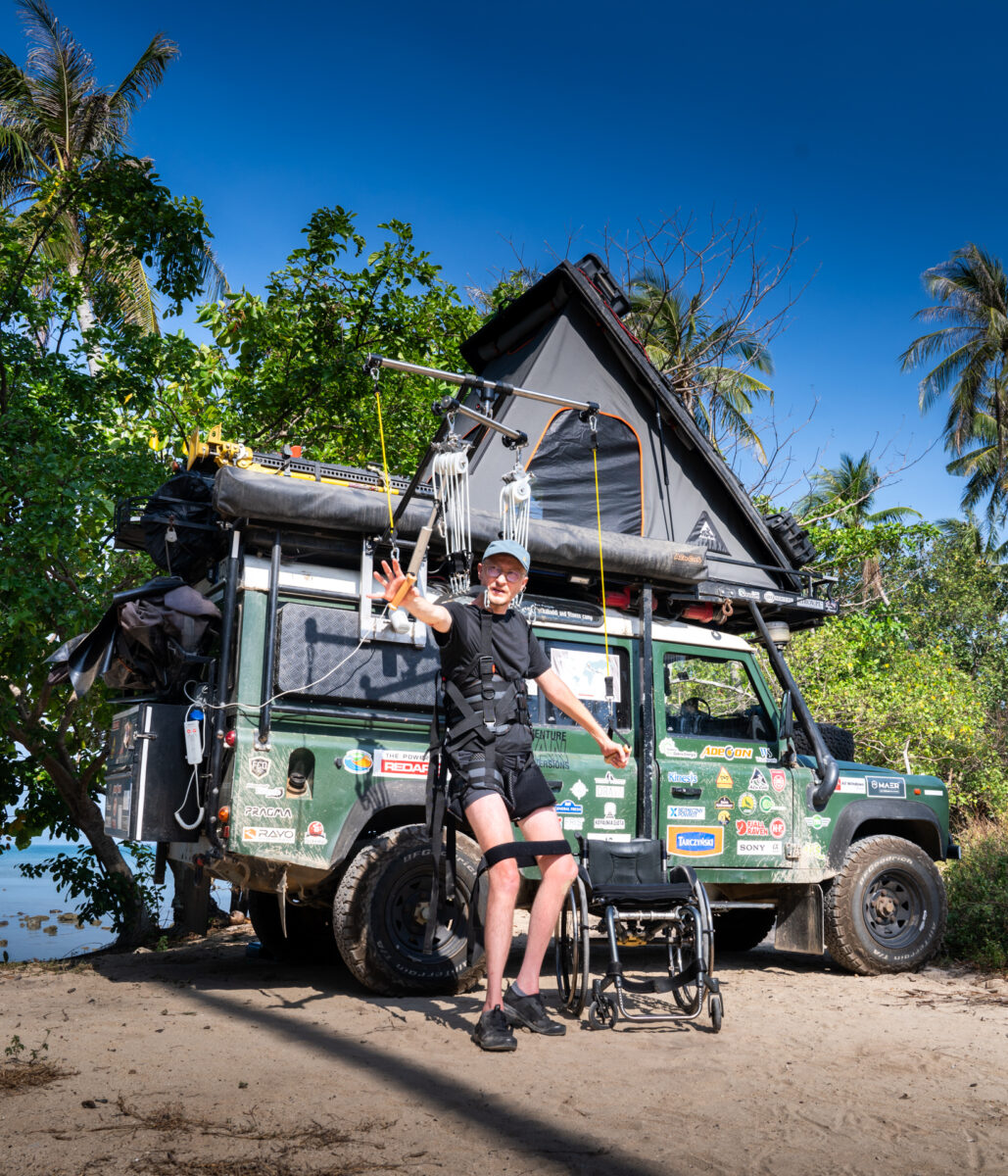
The Mobile Clinic
For his current Poland-to-Australia expedition, the Defender had to serve another critical function: a mobile rehabilitation unit. With a drug treatment that requires consistent physical therapy to slow the progression of his SMA, Michał needed to bring the clinic with him. He approached PragmaSystem with an unorthodox request: to mount their rehab device on the side of the Defender.
“I called and said I wanted it mounted on the side of the car to work out on the way. Silence. Then: ‘Impossible,’” he remembers. Undeterred, he visited the factory. The engineers in blue overalls immediately saw the practical solution. The owners saw a larger possibility: “their device didn’t have to live only in clinic walls. It could work anywhere, even next to an old Defender heading for the end of the world.” Now, Michał can train at the car, maintaining the strength his journeys demand.
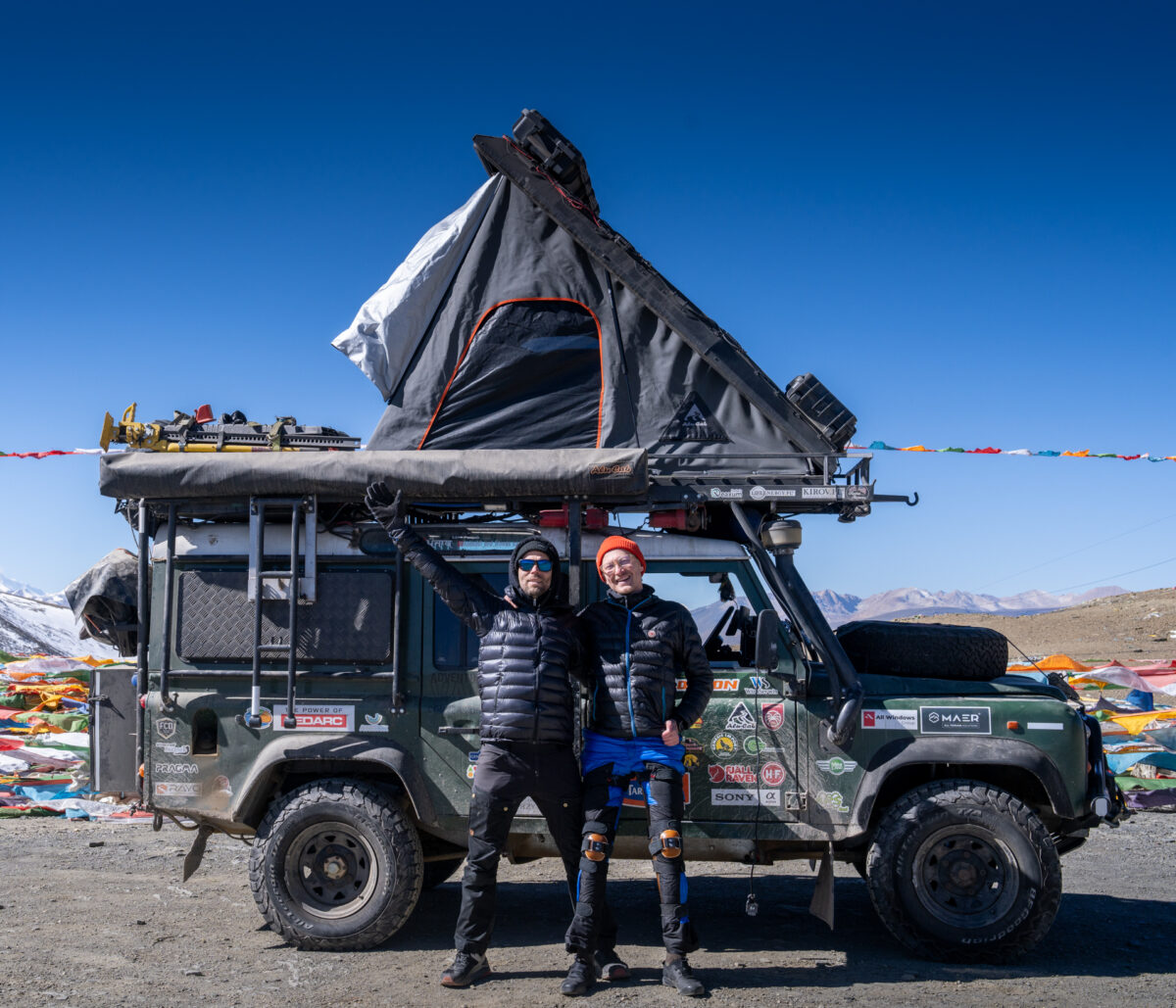
Freedom, Redefined
This purpose-built vehicle does more than transport Michał; it embodies his definition of freedom. “Freedom doesn’t mean the absence of limits,” he says. “My disability is with me daily; I can’t take it off like a backpack. Travel taught me that freedom starts in the mind.”
Behind the wheel of his Defender, he is independent. He can go where he wants, stop when he wants, and sleep under South American skies or on an Indonesian beach. The winches and lifts are mechanisms of autonomy. “They gave me independence from other people. That feeling matters as much as the miles.”
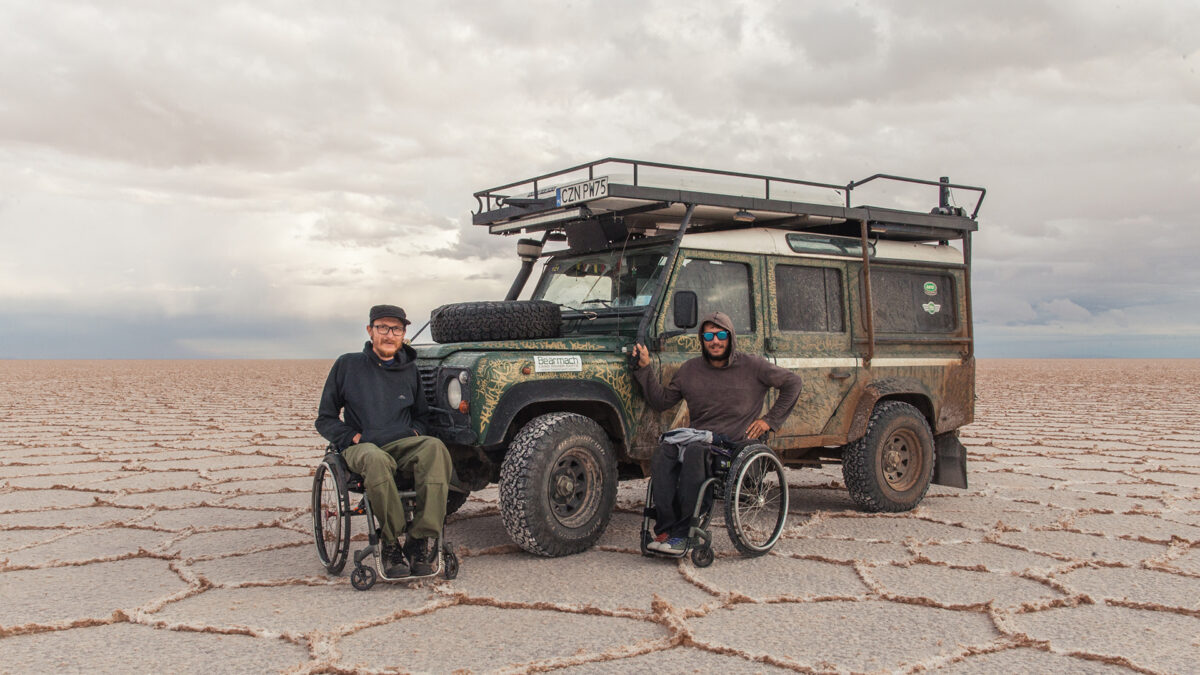
Barriers Are Not End Points
This hard-won perspective has reshaped Michał’s entire outlook. He recalls a night stranded five kilometres from Machu Picchu, unable to reach the ruins. “Once, that would have crushed me. And then it hit me. Travel had given me something I couldn’t learn in any other way. It gave me permission to accept that some places will remain out of reach for me. And that’s okay.”
For Michał Woroch, the journey isn’t about the places he can reach. It’s about proving that barriers – whether a 10-centimetre curb, a broken timing belt in Nicaragua, or a societal assumption about disability – are not endpoints. Instead they are simply problems waiting for a solution. And from his small town in Poland to the world, he has built his life, and his Land Rover, to solve them.
